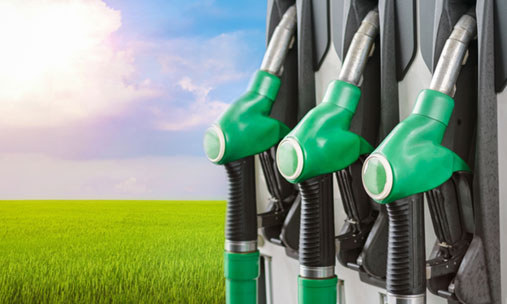 Westmore Fuel blends and rack injects biodiesel at our marine storage terminal in Port Chester, NY. From there, we can deliver the biodiesel to your on-site storage tank.
Westmore Fuel blends and rack injects biodiesel at our marine storage terminal in Port Chester, NY. From there, we can deliver the biodiesel to your on-site storage tank.
Biodiesel is the first and only EPA-designated advanced biofuel in commercial-scale production across the country and can be used in existing diesel engines without modification.
Biodiesel is produced from a broad range of renewable resources, including soybean oil, animal fats and recycled cooking grease. Biodiesel is then blended with petroleum diesel in varying ratios. At Westmore Fuel, we provide the following blends.
Biodiesel and conventional diesel vehicles are the same. Although light-, medium- and heavy-duty diesel vehicles are not technically alternative fuel vehicles, almost all are capable of running on biodiesel blends. The most common biodiesel blend is B20, This is because it represents a good balance of cost, emissions, cold-weather performance, materials compatibility and ability to act as a solvent.
Yes. Biodiesel raises the cetane number of the fuel and improves fuel lubricity. A higher cetane number means the engine is easier to start and reduces ignition delay. Diesel engines depend on the lubricity of the fuel to prevent moving parts from wearing prematurely. Improved lubricity reduces friction within the moving parts, avoiding additional wear. A primary advantage of biodiesel is that it can improve the lubricity of the fuel at blend levels as low as 1%.
What is the difference between Bioheat fuel® and biodiesel?
Both fuels use the same principles of blending renewable biodiesel with petroleum But Bioheat® is an off-road fuel used to heat homes while biodiesel is an on-road engine fuel for vehicles.
Engines operating on B20 biodiesel have similar fuel consumption, horsepower and torque to engines running on 100% petroleum diesel. Many B20 users report no noticeable difference in performance or fuel economy. Biodiesel also has some emissions benefits, especially for engines manufactured before 2010. For engines equipped with selective catalytic reduction (SCR) systems, the air quality benefits are the same whether running on biodiesel or petroleum diesel.
However, biodiesel still offers greater greenhouse gas benefits than conventional diesel fuel. The emissions benefit is roughly commensurate with the blend level; that is, B20 would have 20% of the emissions reduction benefit of B100.
To receive a quote on biodiesel, contact us today!
Sources:
Biodiesel.org
Afdc.energy.gov
